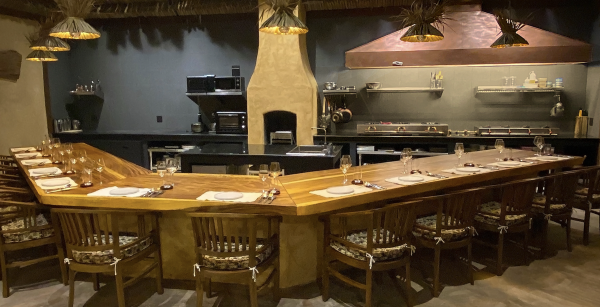CHIANG RAI, 10 July 2024: I am checking out a ‘private resort’, and it’s not easy to find despite being a vast 75 rai estate of lush greenery just a couple of kilometres up the road from Chiang Rai’s Singha Park.
There are only two recognised private resorts that I know of in Thailand. The other is located on Koh Yao Noi, off the east coast of Phuket Island. Meanwhile, Chiang Rai’s elusive Pa Sak Tong is not where Google Maps says it should be, but that might not be accidental.

Private resorts, by their very nature, are challenging to find. They snub LED signage or easy-to-follow road signs and even frown on Google Maps. Google obliges by sending you on a wild goose chase until you almost bump into a bamboo pole barrier and the tiniest of arrows that say welcome — you have arrived.
I was mulling over the conundrum private resorts face. They like to be anonymous for their client’s sake, while a bit of publicity in moderation doesn’t do any harm. I have arrived at a resort named after its opulent Golden Teak villas, where the teams of butlers and chefs curate remarkable hospitality and dining experiences. I am here for lunch with the private resort’s managing director, John Dunbar, who is introducing two new villas to the resort’s portfolio and the now well-established Locus Native Food Lab, an elaborate chef’s table restaurant open to the public.

Last week, Marriott International released a luxury travel study claiming that “three distinct and new groups of luxury travellers have emerged.” They are the ‘Venture Travelist’ who seeks business opportunities when travelling, the ‘Experience Connoisseur’ Millennials who travel for enrichment, and the ‘Timeless Adventurer’, 65-plus who build their own itineraries and explore places before they become famous.
I could add a fourth, the ‘reclusive traveller’, where being anonymous and far away from the media spotlight is worth buying out a resort lock, stock and barrel for your entire stay to be with family and close friends without intrusions.
Pa Sak Tong has all the proper credentials to appeal to travellers seeking the ultimate in privacy; its vast hill country estate cradles its famous guests in an off-the-grid bubble.
“Our product is total privacy with the highest standard of personalised service in Asia, explains Dunbar. “It’s a buyout, but guests have three choices — Khum Sak Tong with 18 guests in six villas, Baan Sak Tong with up to 12 guests in three villas or a total estate buyout of 24 guests in seven villas.
“The major difference between us and other large villas is we price based on the number of guests, which is very positive for smaller parties of four or six guests. Other villa operators charge one price regardless of whether you have two or 24 guests. We feel we offer fair value. So, while calling it a buyout stay, it’s a fair and price-conscious buyout.”
The buyout options for the villas come with a team of butlers and chefs who serve residents exclusively. However, the buyout option can also extend to the resort’s independent signature restaurant, usually open to non-residents. Locus Native Food Lab stands in its own gardens, separated from the villas. In the evenings, it is open to the public for a single seating and is limited to a maximum of 12 diners. Chef Kongwut Chaiwongkajorn presents around 12 to 18 Northern Thai dishes, emphasising that “every dish has a story,” that he tells with enthusiasm as he prepares an amazing array of dishes.
Dunbar recognises there are challenges running Thailand’s only private estate resort in Chiang Rai. “We need international flights to Chiang Rai,” he explains. “Vietjet is planning to restart domestic flights between Phuket and Chiang Rai this October, but we need direct flights from gateway cities in Southeast Asia.”
AirAsia will start direct flights between Kuala Lumpur and Chiang Rai in November. Thai Airways International intends to upgrade its A320 fleet to offer business class and economy on its domestic flight network from its Bangkok hub. That will allow travellers to fly business class to Bangkok and continue the journey in the same class all the way to Chiang Rai.
However, more should be done to put Chiang Rai on the luxury travel map by recognising quality restaurants with a few renowned stars. Dubar points to Michelin, saying it is “unfortunate that it has left out Chiang Rai” when it focused on Chiang Mai.
“Chiang Rai has many excellent dining facilities that should be recognised by Michelin, Locus Native Food Lab being one of them. Hopefully, Michelin will soon include our fine city in their guide,” he concluded.


For more information visit: https://pasaktong.com/en/homepage/.






